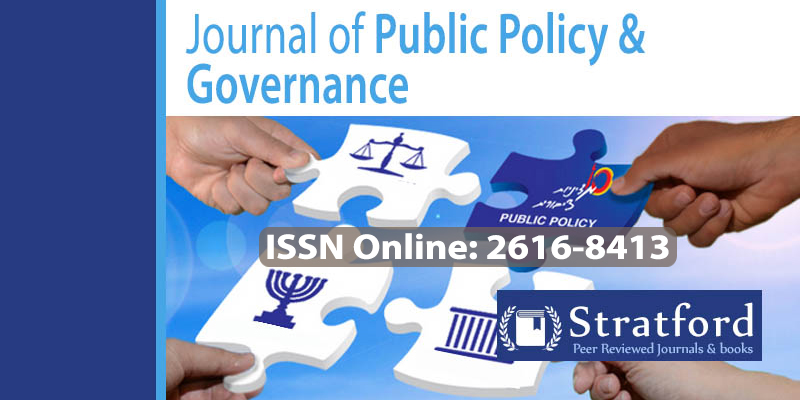Regional Integration Efforts and Political Cooperation of East African Community: A Case of Rwanda
DOI:
https://doi.org/10.53819/81018102t2246Abstract
The main purpose of the research was to assess the role of regional integration in political cooperation among EAC member states. The specific goals were to examine the effect of economic initiatives on political cooperation, to assess the effect of policy harmonization on EAC political cooperation in the case of Rwanda, and to investigate the relationship between diplomatic efforts and EAC political cooperation in the case of Rwanda.
The study's insights on Rwanda-EAC dynamics foster stronger political collaboration, guiding EAC policy decisions. It informs Rwanda's diplomatic strategy, enhances cross-border cooperation within the EAC, and serves as a foundational resource for future research and policy recommendations. The study employs Institutional Liberalism Theory, Neo-Functionalism Theory, and Intergovernmentalism Theory to examine how international institutions, spill over effects, and intergovernmental decision-making shape regional integration and political cooperation within the EAC. The interview guide and questionnaire were used to collect quantitative and qualitative data from the field using a descriptive research design. Interviews were conducted with 30 respondents crossing the Gatuna Border using the convenient sampling technique. 68 respondents were selected from the ministry of foreign affairs based on a purposive sampling method to fill out the questionnaire from their respective offices, making 98 respondents out of 274 people in the target population. The results revealed that the evaluation of economic initiatives revealed strong support for their positive impact on EAC's political cooperation, reflected in high mean scores (4.886 to 4.989) and significant Pearson correlation coefficients (0.322 to 0.674, p < 0.01). Similarly, policy harmonization demonstrated positive effects on political cooperation, evident in high mean scores (4.896 to 4.969) and strong Pearson correlation coefficients (0.452 to 0.702, p < 0.01). Effective diplomatic efforts were found to significantly foster political cooperation, indicated by high mean scores (4.824 to 4.958) and moderate to strong Pearson correlation coefficients (0.245 to 0.914). In conclusion, these results underscore the pivotal roles of economic initiatives, policy harmonization, and diplomatic efforts in strengthening political collaboration within the EAC. The study suggests prioritizing continuous dialogue and mutual understanding among EAC diplomats, emphasizing policy harmonization and regional integration. Rwanda, as an EAC member state, should actively engage in integration efforts, while all member states should strive for collaborative decision-making and standardized policies. Citizens and leadership should support initiatives for economic growth and regional cooperation.
Keywords: Regional Integration Efforts, Political Cooperation, East African Community, Rwanda
References
Blavasciunaite, D., Garsviene, L., & Matuzeviciute, K. (2020). Trade Balance Effects on Economic Growth: Evidence from European Union Countries. Economies, 8(3), Article 3. https://doi.org/10.3390/economies8030054
Bogatyreva, O. (2022). Humanitarian Diplomacy: Modern Concepts and Approaches. Herald of the Russian Academy of Sciences, 92(14), S1349–S1366. https://doi.org/10.1134/S1019331622200047
Cross, M. K. D., & Pekkanen, S. M. (2023). Introduction. Space Diplomacy: The Final Frontier of Theory and Practice. The Hague Journal of Diplomacy, 18(2–3), 193–217. https://doi.org/10.1163/1871191x-bja10152
DeMarco, C. (2018). LibGuides: Section 1: Conceptual Framework. Retrieved 1 September 2023, from https://resources.nu.edu/c.php?g=1013602&p=7661246
Ghosal, J., Dutta, A., Kshatri, J. S., Das, A., Kanungo, S., Singh, A., Kerketta, S., Ghosal, S., Kaur, H., Bal, M., Ranjit, M., Satpathy, S. K., & Pati, S. (2023). Development, validation & pilot testing of a questionnaire to assess healthcare seeking behaviour, healthcare service utilization & out-of-pocket expenditure of Particularly Vulnerable Tribal Groups of Odisha, India. The Indian Journal of Medical Research, 157(5), 412–420. https://doi.org/10.4103/ijmr.ijmr_3570_21
Karačić Zanetti, J., Brown, M., Viđak, M., & Marušić, A. (2023). Diplomatic response to global health challenges in recognizing patient needs: A qualitative interview study. Frontiers in Public Health, 11. https://www.frontiersin.org/articles/10.3389/fpubh.2023.1164940
Long, T. (2020). Historical Antecedents and Post-World War II Regionalism in the Americas. World Politics, 72(2), 214–253. https://doi.org/10.1017/S0043887119000194
Lwesya, F. (2022). Integration into regional or global value chains and economic upgrading prospects: An analysis of the East African Community (EAC) bloc. Future Business Journal, 8(1), 33. https://doi.org/10.1186/s43093-022-00141-9
Ndomondo-Sigonda, M., Miot, J., Naidoo, S., Masota, N. E., Ng’andu, B., Ngum, N., & Kaale, E. (2021). Harmonization of medical products regulation: A key factor for improving regulatory capacity in the East African Community. BMC Public Health, 21(1), 187. https://doi.org/10.1186/s12889-021-10169-1
Newman, P. A., Guta, A., & Black, T. (2021). Ethical Considerations for Qualitative Research Methods During the COVID-19 Pandemic and Other Emergency Situations: Navigating the Virtual Field. International Journal of Qualitative Methods, 20, 16094069211047823. https://doi.org/10.1177/16094069211047823
Ntara, C. (2023). Political Leadership and Regional Integration: A Case of the East African Community Common Market. https://doi.org/10.12792/JMTI.10.1.1
Oloo, A. (2016). The Place of Africa in the International Community: Prospects and Obstacles. Open Access Library Journal, 3(4), Article 4. https://doi.org/10.4236/oalib.1102549
Rhee, K., Crabtree, C., & Horiuchi, Y. (2023). Perceived Motives of Public Diplomacy Influence Foreign Public Opinion. Political Behavior, 1–21. https://doi.org/10.1007/s11109-022-09849-4
Rubanda, M. E., Senyonga, L., Ngoma, M., & Adaramola, M. S. (2023). Energy market integration: Harmonizing tariff recourse policies in East Africa. Utilities Policy, 84, 101653. https://doi.org/10.1016/j.jup.2023.101653
Schneider, C. J. (2017). The Political Economy of Regional Integration. Annual Review of Political Science, 20(1), 229–248. https://doi.org/10.1146/annurev-polisci-051215-023006
Wangamati, M. (2015). Regime types influencing integration within the framework of the East Africa Community [Thesis, Masinde Muliro University of Science and Technology]. http://repository.eac.int/handle/11671/1615
Wohlmuth, K. (2017). Towards Transformative Regional Integration and Measuring Integration Progress. Revue Interventions Économiques. Papers in Political Economy, Hors-série. Transformations, Article Hors-série. Transformations. https://doi.org/10.4000/interventionseconomiques.5690
Wu, Y., Pu, Y., & Pai, C.-H. (2023). Ways to promote intra-regional trade and investment in Central Asia to boost the green recovery. Economic Change and Restructuring, 56(4), 2511–2527. https://doi.org/10.1007/s10644-023-09527-3


